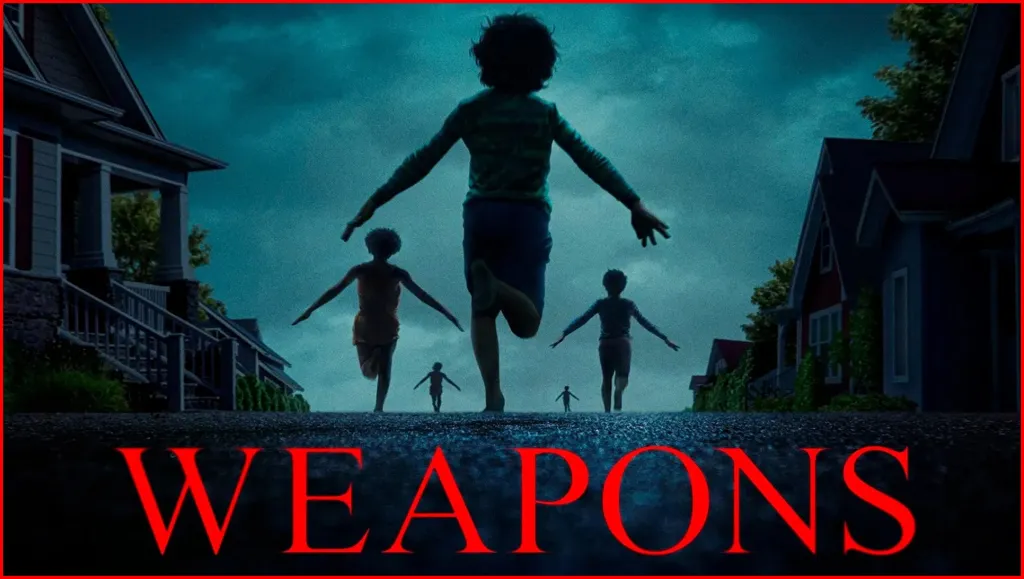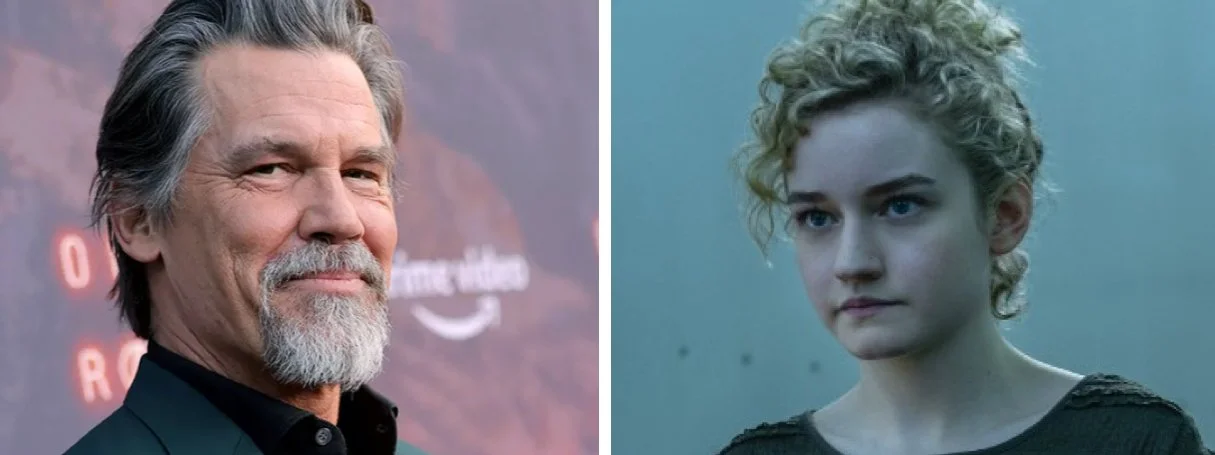There's something unsettling about a director who can make you question everything you think you know about horror. When Zach Cregger burst onto the scene with "Barbarian," he didn't just create a horror movie – he crafted an experience that lingered in audiences' minds long after the credits rolled. Now, with "Weapons," he's back to prove that lightning can indeed strike twice in the same terrifying place.
_Va8xPjS.jpg)
I'll be honest – when I first heard about "Weapons," I was both excited and skeptical. Following up a breakout success like "Barbarian" is no easy feat, especially in the horror genre where audiences have become increasingly discerning. But after diving deep into what makes this film tick, I'm convinced we're looking at something truly special.
What Makes Weapons 2025 Such a Terrifying Horror Experience
The genius of "Weapons" lies not in jump scares or gore, but in its psychological architecture. Cregger has constructed a narrative that feels like walking through a house of mirrors – every reflection reveals something different, something more disturbing than what you initially perceived. The film centers around a spine-tingling mystery about 17 children disappearing from an elementary school, but that's just the surface of something much more sinister.
What strikes me most about Cregger's approach is his understanding that true horror comes from the spaces between what we see and what we imagine. He's not interested in showing you the monster – he wants you to create it in your own mind, making it infinitely more personal and terrifying.
The Elementary School Setting: A Masterstroke in Horror
Choosing an elementary school as the primary setting wasn't just a creative decision – it was a psychological one. Schools represent safety, learning, and childhood innocence. When that sanctuary becomes the epicenter of unexplained disappearances, it taps into our most primal fears about protecting the vulnerable. The chilling atmosphere that makes Weapons unforgettable viewing stems from this brilliant subversion of a place we inherently trust.

Incredible Performances by Julia Garner and Josh Brolin in Weapons
Let's talk about the powerhouse performances that anchor this psychological nightmare. Julia Garner, who's proven her range from "Ozark" to "The Assistant," brings a raw vulnerability that makes every scene crackle with tension. She doesn't just act scared – she embodies the kind of fear that seeps into your bones and stays there.
Josh Brolin, meanwhile, delivers what might be his most unsettling performance to date. There's something deeply uncomfortable about watching an actor known for his strength and reliability portray someone whose world is slowly unraveling. The dynamic between Garner and Brolin creates a tension that feels authentic and lived-in, like we're witnessing real people grappling with an impossible situation.
Supporting Cast Excellence
The ensemble doesn't stop there. Alden Ehrenreich brings his trademark intensity to a role that seems tailor-made for his ability to convey internal conflict. Benedict Wong and Amy Madigan round out the cast with performances that add layers of complexity to an already intricate narrative. Each actor seems to understand that they're part of something larger than individual performances – they're creating a collective atmosphere of unease.
How Weapons Compares to Barbarian Horror Movie Success
The inevitable question: does "Weapons" live up to the standard set by "Barbarian"? In many ways, it's a different beast entirely. While "Barbarian" was a more straightforward descent into madness, "Weapons" operates like a slow-burning fuse. It's more patient, more calculated, and arguably more unsettling because of it.
Where "Barbarian" shocked audiences with its unexpected turns, "Weapons" creates dread through anticipation. You know something terrible is coming – you can feel it in every frame – but Cregger makes you wait for it, building tension until the atmosphere itself becomes a character.
Amazing Cinematography and Storytelling Techniques in Weapons Film
The visual language of "Weapons" deserves special mention. The cinematography doesn't just capture the story – it enhances the psychological impact. Long, static shots create a sense of voyeurism that makes audiences complicit in the unfolding horror. The camera work suggests that we're always being watched, even when we think we're safe.
_uM6Grx7.jpg)
The editing rhythm is particularly masterful. Cregger knows when to cut and when to linger, creating a pace that mimics the way fear actually works – sudden jolts followed by extended periods of anxious waiting.
Why Horror Fans Should Watch Weapons in Theaters
There's something to be said for experiencing horror as a communal event. "Weapons" is designed for the theater experience – the collective gasps, the shared tension, the way an entire audience can hold its breath simultaneously. Watching this film at home simply won't have the same impact.
The sound design alone demands a theatrical experience. Every creak, every whisper, every moment of silence is carefully crafted to work in surround sound. The film uses audio not just to punctuate scares, but to create an immersive environment where danger could lurk in any corner.
What Critics Are Saying About Weapons Psychological Horror Elements
Early critical responses suggest that "Weapons" is already generating significant buzz among horror enthusiasts and film critics alike. The consensus seems to be that Cregger has successfully avoided the sophomore slump that often plagues breakthrough directors. Instead, he's created something that builds on his strengths while exploring new territory.
Critics particularly praise the film's restraint – its willingness to let tension build naturally rather than forcing scares. In an era of horror films that often rely on shock value, "Weapons" stands out for its commitment to psychological depth over cheap thrills.
The Mystery That Drives Everything Forward
At its core, "Weapons" is a mystery thriller that happens to be terrifying. The disappearance of 17 children isn't just a plot device – it's a catalyst that reveals the dark underbelly of a community that seemed perfectly normal on the surface. The terrifying moments that will keep you on edge in Weapons come not from external threats, but from the realization that evil can exist in the most mundane places.
What I find most compelling about the mystery is how it refuses to provide easy answers. This isn't a film that wraps everything up in a neat bow. Instead, it asks uncomfortable questions about how well we really know the people around us and whether safety is ever more than an illusion.
Community Fear and Contemporary Relevance
The themes explored in "Weapons" feel particularly relevant in our current cultural moment. The film taps into contemporary anxieties about child safety, community trust, and the fragility of the social contracts that hold our neighborhoods together. It's horror that doesn't exist in a vacuum – it speaks to real fears that many parents and community members grapple with daily.
Warner Bros and the Future of Psychological Horror
Warner Bros' decision to back "Weapons" signals something important about the current state of horror cinema. Major studios are recognizing that audiences are hungry for intelligent, psychologically complex horror that doesn't talk down to them. This isn't just about jump scares and gore – it's about crafting experiences that stay with viewers long after they leave the theater.
The success of films like "Hereditary," "The Babadook," and "Get Out" has shown that there's a substantial market for horror that doubles as serious filmmaking. "Weapons" seems positioned to continue this trend, offering both genre thrills and substantive storytelling.
Final Thoughts: A New Chapter in Horror Cinema
As I reflect on what makes "Weapons" such a compelling entry in contemporary horror cinema, I keep coming back to its respect for audience intelligence. This is a film that trusts viewers to pick up on subtle cues, to read between the lines, and to construct their own understanding of the horror unfolding on screen.
Zach Cregger has proven that his success with "Barbarian" wasn't a fluke. With "Weapons," he's established himself as a director who understands that the most effective horror comes from human psychology rather than supernatural threats. The real monsters, he suggests, are often the ones hiding in plain sight.

Whether you're a longtime horror fan or someone who typically avoids the genre, "Weapons" offers something unique – a film that's as interested in exploring human nature as it is in providing scares. It's the kind of movie that will have you discussing theories and interpretations long after the credits roll, and in our age of disposable entertainment, that's becoming increasingly rare and valuable.
If you're looking for your next great theater experience, "Weapons" should be at the top of your list. Just don't expect to sleep easily afterward – the best horror films never let you do that.
